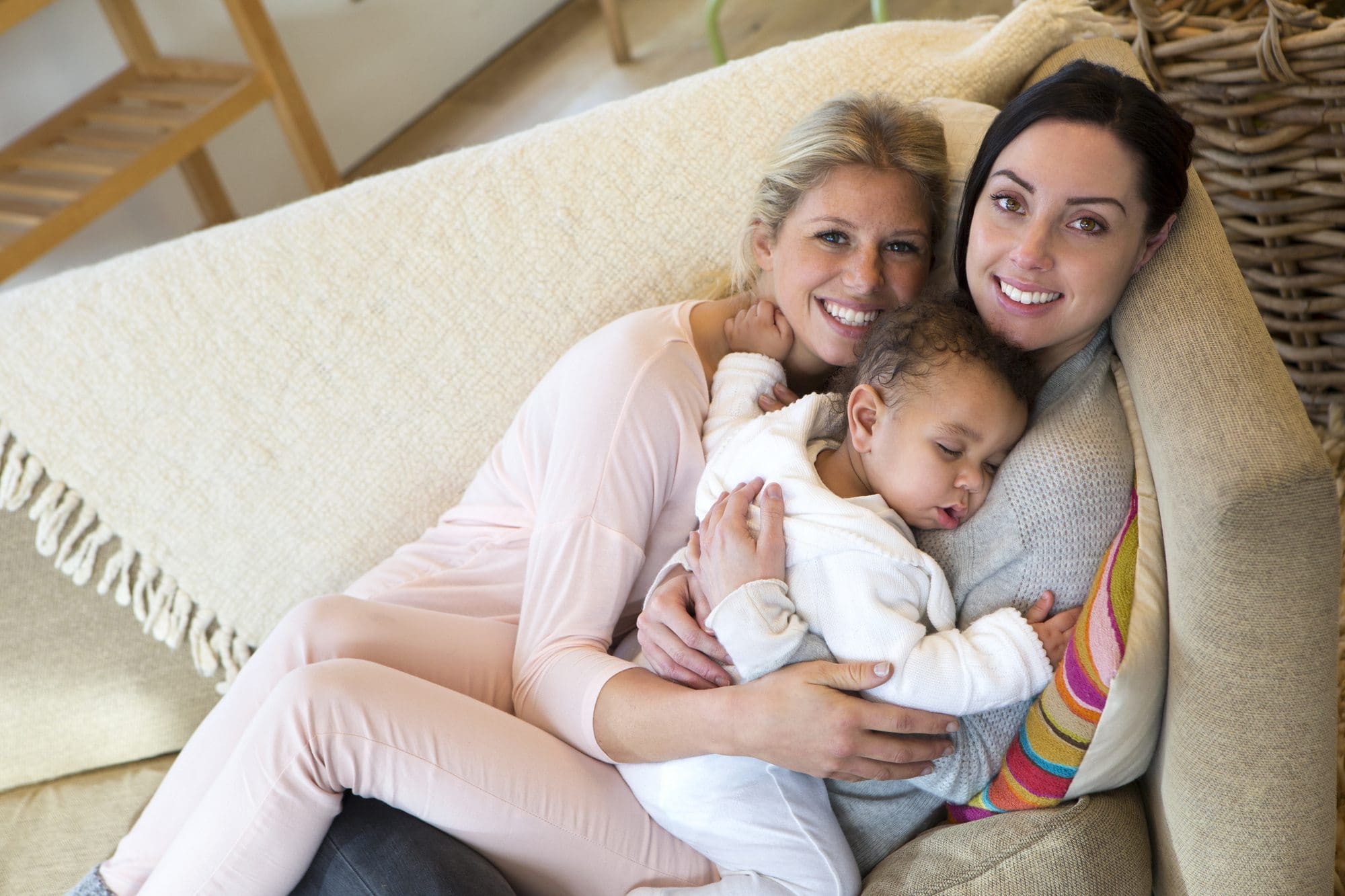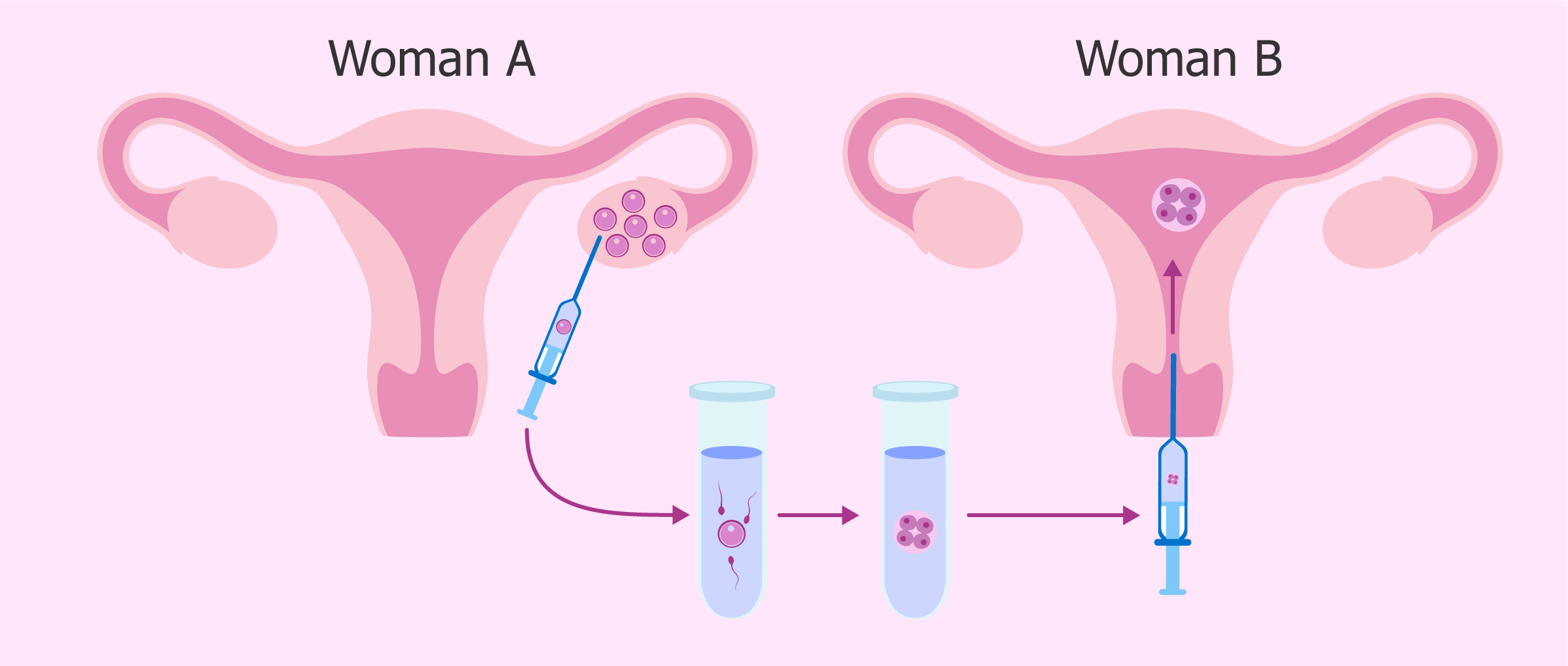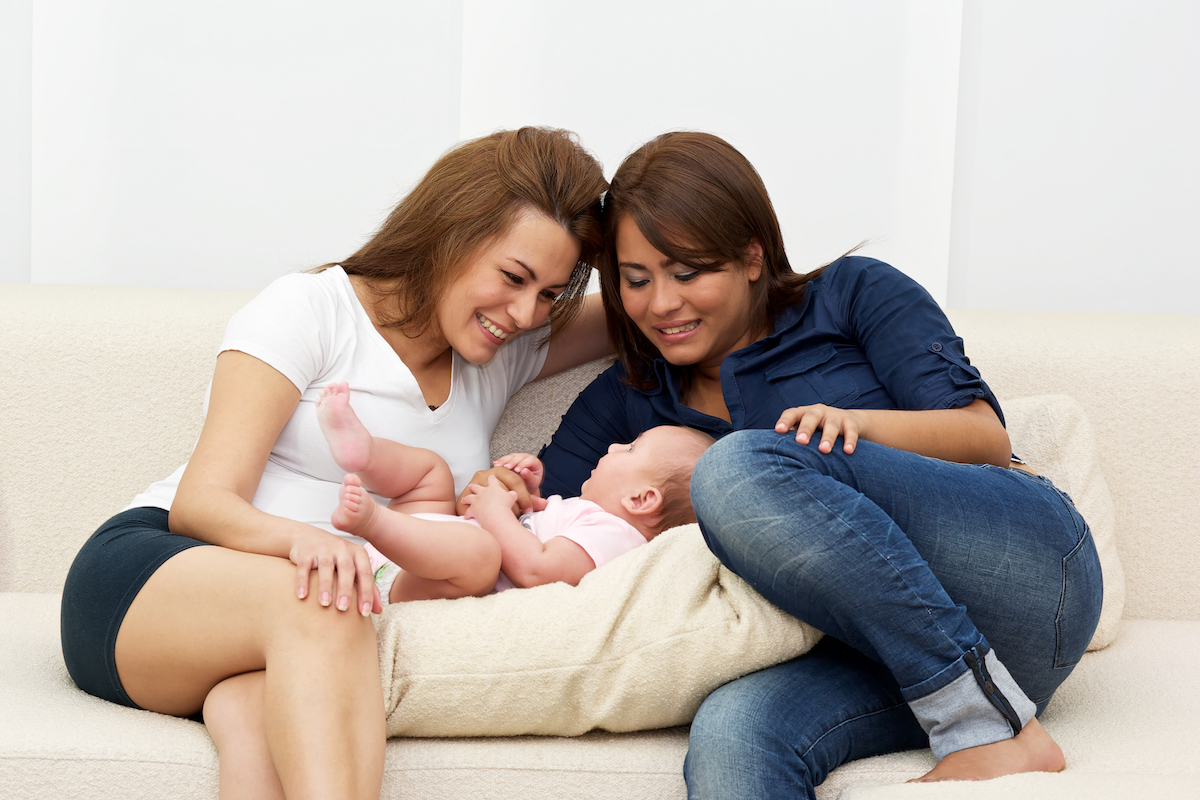How Do Donlesbians Have A Baby? Exploring Paths To Parenthood
For many donlesbians, the dream of having a baby is a deeply felt aspiration, a very personal desire to nurture and raise a family. So, too it's almost, the journey to parenthood can seem a bit complex, especially when you're exploring the different ways to make that dream a reality. You know, it's about taking action, performing the acts necessary to bring a new life into the world, much like how one might "do" a task or "perform" a role. This article aims to shed some light on the various paths available, offering insights into the choices and processes involved for donlesbians looking to welcome a little one.
Creating a family is, in some respects, a very profound act, a series of deliberate steps taken with love and purpose. Just like when you "do" something significant, whether it's a creative project or a duty, the process of having a baby as a donlesbian couple involves careful planning and often, the help of medical professionals. We'll explore how these actions come together, allowing individuals and couples to build the families they've always wanted, which is actually quite wonderful to consider.
It's important to remember that every family's journey is unique, and there are many wonderful ways to "do" family building. From choosing a sperm donor to understanding different fertility treatments, each step is a part of the larger picture. We'll break down the options, giving you a clearer idea of what's involved when donlesbians decide it's time to expand their loving homes, which is a truly exciting prospect, you know?
- Mark Ruffalo Imdb
- Samuel L Jackson Insidious
- Morgan Freeman Left Hand Amputated
- Gary Oldman Height
- Hugh Jackman From New York With Love Review
Table of Contents
- Understanding the Journey to Parenthood for Donlesbians
- Choosing a Donor: Making an Important Decision
- The Role of Medical Professionals in Family Building
- Legal and Emotional Considerations
- Frequently Asked Questions About Donlesbian Family Building
Understanding the Journey to Parenthood for Donlesbians
When donlesbians decide to have a baby, they often look at a few main paths, each involving specific actions and steps. It's about performing the necessary tasks to create a family, which is a big undertaking. These methods generally involve assisted reproductive technologies (ART), which help bring sperm and egg together when traditional conception isn't an option. The choice of method often depends on various factors, including the couple's health, preferences, and financial situation, so, you know, it's quite a personalized journey.
Sperm Donation: A Common First Step
Nearly all paths to parenthood for donlesbians begin with sperm donation. This is, in a way, the initial "act" that makes conception possible. There are typically two main sources for sperm: a known donor or an anonymous donor from a sperm bank. Choosing a donor is a very significant decision, involving considerations about genetics, health history, and the level of future contact, if any. It's a fundamental part of the "doing" process, really.
Intrauterine Insemination (IUI): The Initial Act
Intrauterine Insemination, often called IUI, is one of the less invasive methods donlesbians might choose. This procedure involves carefully placing sperm directly into the uterus around the time of ovulation. It's a relatively simple "act" in the grand scheme of fertility treatments, often done in a doctor's office. For many, it's a good starting point because it's less complex and generally costs less than other options. The goal is to give the sperm a better chance of reaching the egg, which is pretty straightforward, actually.
- Peter Dinklage In Dexter
- Hugh Jackman From New York With Love
- Morgan Freeman Caroline Leavitt
- Ryan Reynolds Drama
- Samuel L Jackson Carrie Anne Moss
In Vitro Fertilization (IVF): A More Involved Process
In Vitro Fertilization, or IVF, is a more comprehensive process that donlesbians may consider, especially if IUI hasn't worked or if there are other fertility concerns. This method involves retrieving eggs from one partner (or a donor), fertilizing them with donor sperm in a lab dish – that's the "in vitro" part, meaning "in glass" – and then transferring the resulting embryo into the uterus. It's a series of very precise "acts" performed by medical specialists, and it offers a higher success rate for many. This approach can be quite a bit more intensive, both emotionally and financially, but it often yields wonderful results.
Reciprocal IVF: Sharing the Experience
Reciprocal IVF is a truly special option that allows both partners in a donlesbian couple to "do" something active in the creation of their baby. In this process, one partner provides the eggs, which are then fertilized with donor sperm, and the resulting embryo is transferred into the other partner's uterus for gestation. It's a way for both individuals to be biologically and physically involved in the pregnancy journey. This method embodies the idea of a "whole person approach," where both partners actively participate, much like how a doctor of osteopathic medicine might partner with their patients, focusing on their complete well-being. It's a very meaningful way to build a family, really, allowing for a shared experience of conception and pregnancy.
Choosing a Donor: Making an Important Decision
The selection of a sperm donor is a pivotal "act" in the family-building process for donlesbians. This choice carries significant weight, influencing not only the biological aspects of the child but also potential future relationships and family dynamics. It’s a decision that requires careful thought and consideration of various factors, which is quite important. You know, it's like choosing a path to "do" something that will have long-lasting effects.
Known Donors and Their Implications
Some donlesbians choose to use a known donor, perhaps a friend or family member. This option allows for a personal connection and often means the child will know their biological father. While this can offer emotional benefits and clarity regarding genetic background, it also involves navigating complex legal and social agreements. It's crucial to "do" your homework and establish clear legal contracts to define parental rights and responsibilities from the start, ensuring everyone is on the same page. This step, frankly, helps prevent misunderstandings later on.
Anonymous Donors and Clinic Support
Alternatively, many donlesbians opt for anonymous donors through licensed sperm banks. These banks offer a wide selection of donors, providing detailed profiles that include medical history, physical characteristics, education, and even personal essays or audio interviews. This approach offers a level of privacy and legal simplicity, as the donor typically waives all parental rights. Working with a reputable sperm bank helps ensure the sperm is screened for genetic conditions and infectious diseases, which is a very important part of "doing" things safely and responsibly. It’s a streamlined way to get the necessary biological material, really.
The Role of Medical Professionals in Family Building
The journey for donlesbians to have a baby often involves close collaboration with medical professionals, including fertility specialists, reproductive endocrinologists, and sometimes, even those with a "whole person approach" philosophy, like a Doctor of Osteopathic Medicine (DO). These doctors are fully licensed physicians who "do" the same job as an MD, focusing on comprehensive patient care. They partner with their patients to understand their overall health and well-being, which is very helpful during such a significant life event.
A fertility clinic provides the expertise and resources needed to "perform" the various procedures, from IUI to IVF. They conduct thorough health assessments, help select the most suitable treatment plan, and guide patients through each step. Their role is to facilitate the biological "act" of conception, ensuring it happens in the safest and most effective way possible. This support is pretty essential, you know, as it helps navigate what can sometimes feel like a very complex process.
These medical experts also offer guidance on preparing the body for pregnancy, managing medications, and monitoring progress. They are there to answer questions, address concerns, and provide emotional support, making sure the entire experience is as smooth as it can be. It’s about more than just the medical procedures; it’s about caring for the individuals involved in a complete way, which is something that really matters, apparently.
Legal and Emotional Considerations
Beyond the medical aspects, donlesbians planning to have a baby must "do" some important work on the legal and emotional fronts. These considerations are just as vital as the physical steps, ensuring the family is protected and supported in every way. It's about setting a strong foundation for the future, you know, much like how you would "do" thorough preparation for any major life event.
Securing Parental Rights
For donlesbian couples, legally securing parental rights for both partners is a very important "act." Even if one partner is the biological parent, the other partner may need to go through a second-parent adoption or obtain a court order to establish their legal parentage. Laws vary by region, so it's essential to consult with a family law attorney who specializes in LGBTQ+ family building. This legal "doing" protects both parents and the child, ensuring that both partners have full legal rights and responsibilities. It's a step that provides peace of mind and security, which is pretty crucial.
Supporting Emotional Well-being
The journey to parenthood can be an emotional roller coaster, filled with hope, anticipation, and sometimes, disappointment. It's vital for donlesbians to "do" what they can to support their emotional well-being throughout this process. This might involve seeking support from friends, family, or LGBTQ+ parenting groups. Therapy or counseling can also be incredibly helpful for processing feelings, managing stress, and strengthening the couple's bond. Remembering to be kind to yourselves and each other during this time is a very important "act" of self-care and partnership, you know? It's about nurturing the people doing the parenting, too.
Frequently Asked Questions About Donlesbian Family Building
What are the different ways donlesbians can have a baby?
Donlesbians can pursue several paths to parenthood, each involving distinct "acts" of family creation. The most common methods include Intrauterine Insemination (IUI), where donor sperm is placed directly into the uterus, and In Vitro Fertilization (IVF), which involves fertilizing eggs with donor sperm in a lab before transferring the embryo. Additionally, Reciprocal IVF allows one partner to provide the egg and the other to carry the pregnancy, a very shared "doing" experience. Adoption is also a wonderful way to build a family, of course.
Is sperm donation the only option for donlesbians?
Yes, for donlesbians who wish to have a biological child, sperm donation is a necessary "act" to facilitate conception. This is because two ovum-producing bodies cannot naturally combine to create an embryo. Sperm can come from a known donor or an anonymous donor from a licensed sperm bank. While sperm donation is essential for biological children, donlesbians also have the option of adoption, which does not involve sperm donation at all, naturally.
What is reciprocal IVF for donlesbians?
Reciprocal IVF is a very unique and meaningful "act" of family building for donlesbian couples. It allows both partners to participate biologically in the creation of their child. One partner undergoes ovarian stimulation and egg retrieval, providing the eggs. These eggs are then fertilized with donor sperm in a lab. The resulting embryo is then transferred into the uterus of the other partner, who will carry the pregnancy. It's a way for both individuals to "do" something very active in the biological process, creating a deeply shared experience, which is pretty special.
As donlesbians consider their paths to parenthood, it's clear that building a family is a series of deliberate "acts" and choices, supported by medical expertise and legal planning. The journey, while unique for everyone, is a testament to the powerful desire to nurture and love. For more information on reproductive health options, you might look into resources from organizations like the American Society for Reproductive Medicine. Learn more about family planning options on our site, and explore various fertility treatments that could be right for you. Taking these steps is, honestly, an incredible way to build the family you dream of having, and it's something many donlesbians are doing successfully today.
- Paul Rudd Clone Show
- Tommy Lee Jones Fishing Boat Movie
- Denzel Washington Closing Door Gif
- Tom Hardy Latest Movie
- Mark Ruffalo Eternal Sunshine Of The Spotless Mind

Parenting Rights & Custody Issues for LGBTQIA+ Parents - Weinberger

lesbian have a baby - Pregnant Health Tips

This Week in Sex: How a Lesbian Couple Literally Made a Baby Together